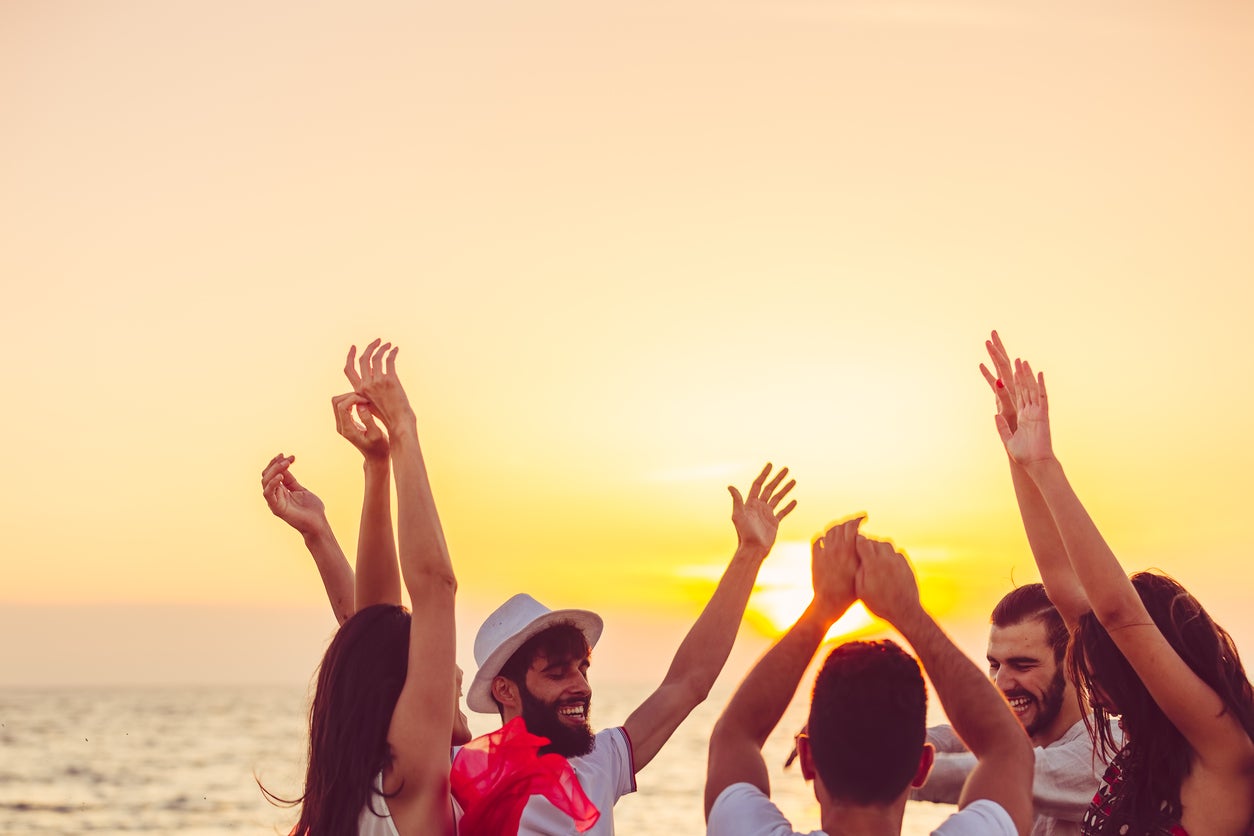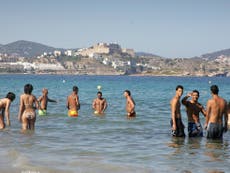Why are working-class kids getting injured and killed on their summer holidays to Magaluf? I did some research and it was really grim
I lived ‘the dream’, as it were. And what a ‘dream’ it was, I thought, when I saw a dead Brit floating naked in a swimming pool

Once again this summer has provided the press with a neverending source of newsworthy material about Brits abroad in Magaluf, Majorca and San Antonio, Ibiza. Stories of balcony falls, hospitalisations and violent deaths, woven together between the weepy testimonies of family and friends who have lost their loved ones, dominate the tabloids.
We have reason to be disturbed by what is happening in these holiday resorts, which is why in 2010 after reading an article bemoaning the behaviour of Brits abroad in San Antonio, Ibiza, I did my own study.
I was appalled at the fact that nothing effective was really done about it – that people continued to go to these places and get involved in the same problems. Why were young men on stag trips ending up in rivers, or people celebrating their A-levels plunging to their deaths from high-rise hotels?
To find out, I spent three summers observing and interviewing, and to some degree participating, in the mammoth drinking and drug-taking sessions which are normal in such resorts; dancing barefoot among broken glass and vomit almost every weekend.
I lived “the dream”, as it were. And what a “dream” it was, I thought, when I saw a dead Brit floating naked in a swimming pool. It was a “beautiful dream”, I had to remind myself, when I interviewed the surgeon who had a three-metre collection of hospital ward bracelets hanging from his office, each one representing someone who had died of drug and/or alcohol-related intoxication, or from injuries they’d sustained when falling from a balcony or getting into a fight. Yet around me the party continued.
Why do so many Brits seek this hedonism? What is it about this “dream” that invites people to book their holiday there, and return year after year to do the same thing? Why do they just stay in the resort and get drunk, and then beat each other up?
Here is why: once upon a time, working class Brits went to resorts in places like Blackpool and along the coast for their holidays, rarely leaving the area. These days the same atmosphere is reflected in many of the Spanish coastal resorts, where you find things like the Red Lion pub, or nightlife venues peppered with the St George’s flag. This dedication to creating a British enclave in a Spanish area makes UK tourists feel they don’t really need to go anywhere else, thus restricting their interest and spending to the resort space.
The holiday is a different time and the resort is a different place, and this combination of the two mean that we relax our attitudes towards home duties and routines, which permits us to feel more liberated and thus be flexible with our behaviour.
UK culture revolves heavily around going out, drinking, taking drugs, getting nails and eyebrows done; reality programmes like Love Island where the contestants are caricatures. All of this makes us hungry for the supposed “good life”, this “dream”. Look at all the perfect people with radioactive tans and glow-in-the-dark teeth: the people in Magaluf and San Antonio are replicas of these strangely perfect people. These caricatures also mark what we expect of the holiday in some way.
Imagine that you had a dead-end job which was socially seen as fairly defunct, or were studying, and there was not much on your horizon – largely thanks to the political hollowing-out of the labour market and the disintegration of secure work. At that point, “play”, “immediacy”, “impulsiveness”, “taking risks” and “taking advantage” become people’s motifs for life. Interest wanes in community values and leans towards individual satisfaction and personal gratification, augmented by the presence of online apps which entice people into their own virtual existences.
Free market commercial activity allows certain companies which sell holidays and cheap flights to sell ideas of what holidays are all about and what should accompany them, sell packages like bar crawls and other products in resorts. This is all the commercial undercurrent which subliminally makes us feel like we make free choices about the holiday. Just like the supposed free-will choices these young people make to take drugs and drink constantly for three days running without eating.
When hotel, bar and club owners compete for the spending associated with the Brits in places like Magaluf and San Antonio, they extend drinking hours during the day and lower prices, which forces businesses to market products associated with the demand: drink and sex. This is why, when you walk around these resorts, there are half-naked women dancing in the bars on podiums; there are strip clubs and brothels, because they go hand in hand with a nightlife tourism based around drinking.
Bit by bit, the resort caves to this form of tourism as it is the most profitable. The financial crisis exacerbated all this because many Brits stopped coming in the few years after, so an investment in this type of tourism is beneficial for companies regardless of the consequences of excessive consumption.
Business also has its fingers neatly in political pies, and so the politicians permit it, which is why there is at best a tokenistic policing and limp preventative framework (both of which get lauded as success stories). Otherwise it is just business as usual as another summer begins.
Put all the ingredients together to make the recipe we have for places like Magaluf and San Antonio. So the cases you read about this summer are more than just three drunk people toppling off a balcony in the same apartment. There is more going on behind the scenes when a young lad is beaten to death. The mass brawl was not just a random moment in which one half of Magaluf turned on the other. Behind all this are more sinister commercial and political processes which make people believe they should be doing these things in these places to this degree. The “dream” is nothing but commercial guff; it makes money from you and is sold to us as a marker of what we should do in life. Nevertheless, it is a powerful one and it works.
Since then, I’ve done other studies and seen the same thing: droves of young Brits descend in their masses upon a resort only to drink limitless amounts of alcohol in a short period. PR workers who try to get the punters in the bars are “living the dream” too – except the girl who has to dress up in a thong as her work uniform and sell shots while she’s constantly groped just to make a basic wage. A young PR man told me he looks for really drunk female tourists after work each night and shepherds them back to his flat so he can have sex with them.
I found these studies to be the most depressing research I’ve ever done, because of the way these young Brits consent to this plastic fun as a marker of a life worth lived. No wonder they feel empty inside and rely so much on social media to generate their personal security for them. Either that or tune into the manufactured love on Love Island which, by the way, is filmed in Majorca. Who knows, it may trigger an impulsive purchase online for a last-minute holiday in Magaluf.
Daniel Briggs is a part time lecturer in criminology at the Universidad Europea in Madrid and a consultant for the British Foreign and Commonwealth Office. He is author of many books and articles, including Dead End Lives: Drugs and Violence in the City Shadows, which won the Division of International Criminology Outstanding Book Award 2018



Join our commenting forum
Join thought-provoking conversations, follow other Independent readers and see their replies